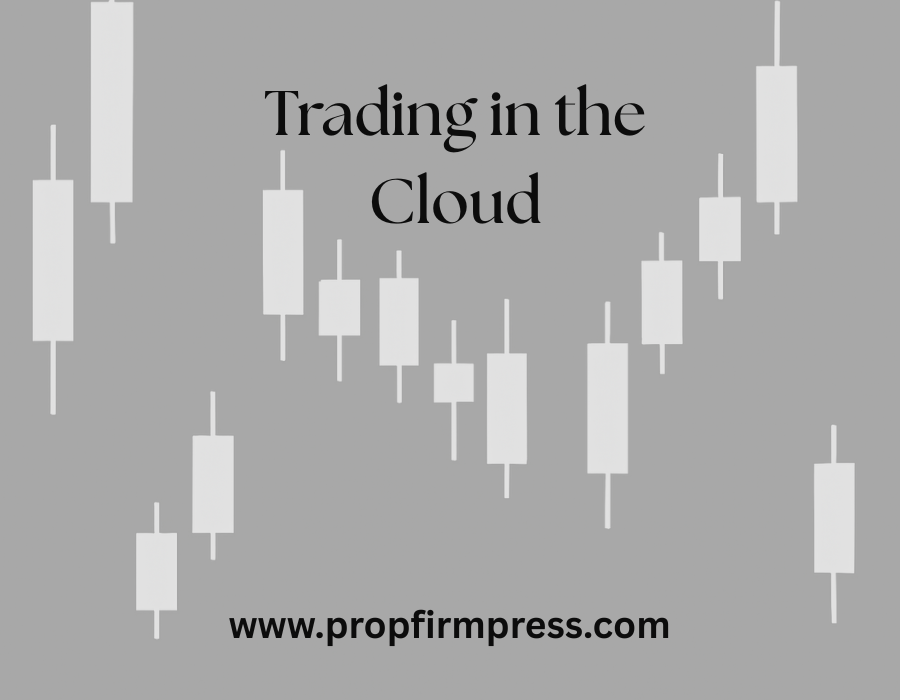Trading in the Cloud
The evolution of cloud computing has transformed countless industries, and the trading sector is no exception. Trading in the cloud leverages powerful cloud infrastructure to deliver faster, more reliable, and scalable trading solutions. As financial markets become increasingly complex and competitive, traders and institutions alike are turning to cloud-based platforms to gain an edge.
The Rise of Cloud Technology in Financial Trading
Traditionally, financial trading relied heavily on on-premise systems, requiring expensive hardware and constant maintenance. This setup limited scalability and imposed physical constraints that could hinder speed and efficiency. The introduction of cloud computing has shifted this paradigm by offering virtualized resources that can be accessed on-demand, facilitating a more dynamic trading environment.
Cloud providers offer infrastructure as a service (IaaS) and platform as a service (PaaS) solutions tailored to trading requirements. This means traders benefit from reduced latency, improved uptime, and the ability to process vast amounts of financial data in real-time. Additionally, cloud trading platforms enable seamless integration with third-party analytics tools and artificial intelligence systems, further enhancing decision-making capabilities.
Advantages of Cloud-Based Trading Platforms
One of the primary advantages of cloud trading is scalability. As market demands fluctuate, cloud infrastructure can adjust resources dynamically to ensure consistent performance. This flexibility is particularly valuable during periods of high volatility when trading volumes surge unexpectedly.
Another benefit is cost efficiency. Cloud trading eliminates the need for capital-intensive hardware investments and shifts expenses toward operating costs that align with actual usage. This pay-as-you-go model makes advanced trading technology accessible to individual traders and smaller firms that previously lacked the resources to compete with larger institutions.
Cloud platforms also enhance collaboration by enabling remote access from anywhere in the world. With secure cloud connections, traders can monitor markets, execute trades, and manage portfolios without being tied to a physical office or specific device.
Security Considerations in Cloud Trading
While cloud trading offers numerous benefits, it also introduces unique security challenges. Data protection is paramount when dealing with sensitive financial information. Leading cloud providers invest heavily in robust security frameworks, including encryption, multi-factor authentication, and continuous monitoring to mitigate risks.
Financial institutions utilizing cloud trading platforms must ensure compliance with industry regulations such as GDPR, MiFID II, and PCI-DSS. Selecting a cloud vendor that meets these compliance standards is critical to safeguarding both client data and internal trading operations.
Moreover, redundancy and disaster recovery plans are essential components of cloud trading systems. These measures guarantee that trading activities can continue uninterrupted even in the event of cyberattacks, hardware failures, or natural disasters.
The Role of AI and Big Data in Cloud Trading
Cloud platforms provide the computational power necessary to harness artificial intelligence and big data analytics in trading strategies. Machine learning algorithms can analyze historical and real-time market data to identify patterns, optimize trade execution, and predict market movements.
Integrating AI into cloud trading allows for automated decision-making processes that react instantly to market conditions. This enhances precision and reduces human error, a significant advantage in fast-moving markets.
Furthermore, big data analytics processes enormous datasets more efficiently on cloud infrastructure, enabling traders to uncover insights that were previously inaccessible. This data-driven approach drives higher profitability and more informed risk management.
Cloud Trading for Retail Traders vs. Institutional Traders
Both retail and institutional traders benefit from cloud trading, albeit in different ways. For retail traders, cloud-based trading platforms democratize access to advanced tools and global markets. These platforms often feature intuitive interfaces and educational resources designed to assist beginners in trading confidently.
Institutional traders, on the other hand, leverage cloud trading for high-frequency trading, algorithmic executions, and complex portfolio management. The cloud’s vast resources enable institutions to deploy sophisticated strategies that require real-time data feeds, low latency execution, and massive parallel processing.
Cloud trading providers frequently offer tiered service levels or customizable packages tailored to the distinct needs of retail and institutional clients, ensuring that every trader gains optimal value from the platform.
Challenges and Limitations of Trading in the Cloud
Despite its many advantages, cloud trading is not without challenges. Latency remains a crucial consideration, particularly for ultra-high-frequency traders who demand microsecond-level execution speeds. While cloud infrastructure continues to improve, the physical distance between servers and traders can introduce delays compared to on-premise solutions.
Dependency on internet connectivity is another limitation. Any network disruptions or outages can impede access to trading platforms and potentially result in missed opportunities or losses.
Additionally, migrating legacy trading systems to the cloud can be complex and resource-intensive. Firms need to carefully plan migrations to avoid downtime, data loss, or compatibility issues.
Future Trends in Cloud-Based Trading
The future of trading in the cloud looks promising as technology continues to advance. Emerging developments such as edge computing aim to bring cloud processing closer to traders, reducing latency and improving speed.
Integration of blockchain technology is also expected to enhance transparency and security in cloud trading by enabling decentralized transaction verification and settlement.
Additionally, advancements in quantum computing may revolutionize cloud trading by providing unprecedented computational power to analyze markets and execute trades with exceptional precision.
As more traders adopt cloud-based solutions, we can anticipate an ecosystem enriched with innovative tools, personalized strategies powered by AI, and seamless global access to markets.
Ready to sharpen your strategy? Gain instant access to Scalping VIP today.
